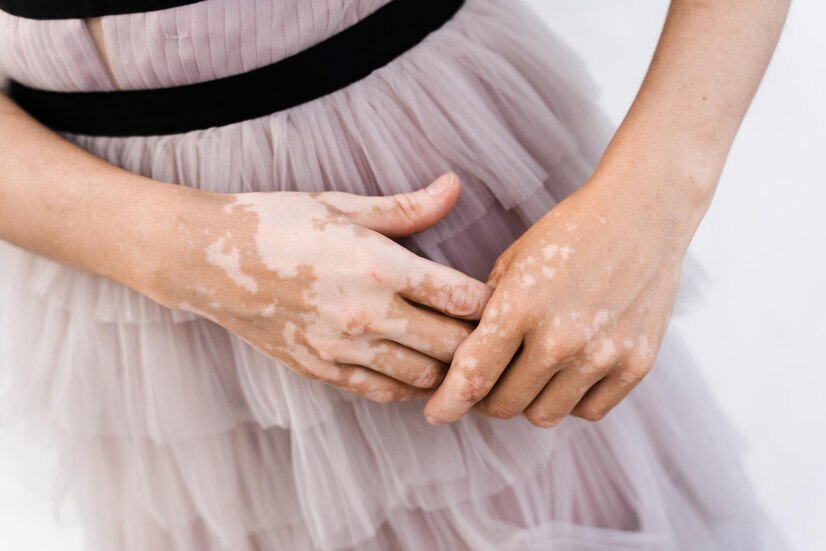- About Us
- Treatments
Skin Treatments
MenuMenuHair Treatments
MenuBody Treatments
Menu - Procedures
Aesthetics
MenuCosmetic Surgery
Menu - Training
- Products
- Gallery
- Contact Us
Vitiligo is a long-term genetic autoimmune skin condition characterized by irregular pale white patches or spots on the skin due to loss of pigmentation. It affects approximately 0.5-1% of the population and can develop in individuals of any age, gender, race, or ethnicity. However, about half of the people with vitiligo develop the condition before the age of 20, and around 95% experience it before middle age.
While vitiligo is a benign, non-contagious, and non-life-threatening skin concern, it can cause distress and embarrassment due to social stigma. However, individuals have the option to manage vitiligo with the help of dermatological treatments offered at Dr. Samatha Clinic by Dr. Samatha, the best skin doctor and vitiligo expert in Hyderabad, who can help achieve a smoother skin appearance.
Vitiligo manifests as pale milky-white spots or patches on the skin with smooth or irregular edges. It may start as a pale patch and gradually turn into a white patch over time. In some cases, the edges of the vitiligo patches may be red and inflamed or have hyper-pigmentation (brown discoloration). Commonly affected areas include the neck, face, hands, and skin creases, especially in individuals with brown or black skin. The condition can also affect the scalp, eyelashes, eyebrows, or beard, causing the hair in these areas to turn grey or white. In rare cases, vitiligo may also affect the mucous membranes lining the nose and inside the mouth.

There are different types of vitiligo, including:

While vitiligo treatment cannot stop its spread, it can help reduce the appearance of white patches. The choice of treatment depends on factors such as the speed of progression, age, affected area, and impact on quality of life. At Dr. Samatha Clinic, the following treatment options are offered:
Dr. Samatha, an experienced and skilled skin specialist, performs these treatments at Dr. Samatha Clinic with a focus on delivering the best outcomes for individuals with vitiligo. Don’t let vitiligo impact your confidence, consult Dr. Samatha for effective management and regain your natural skin appearance.
Book An Appointment